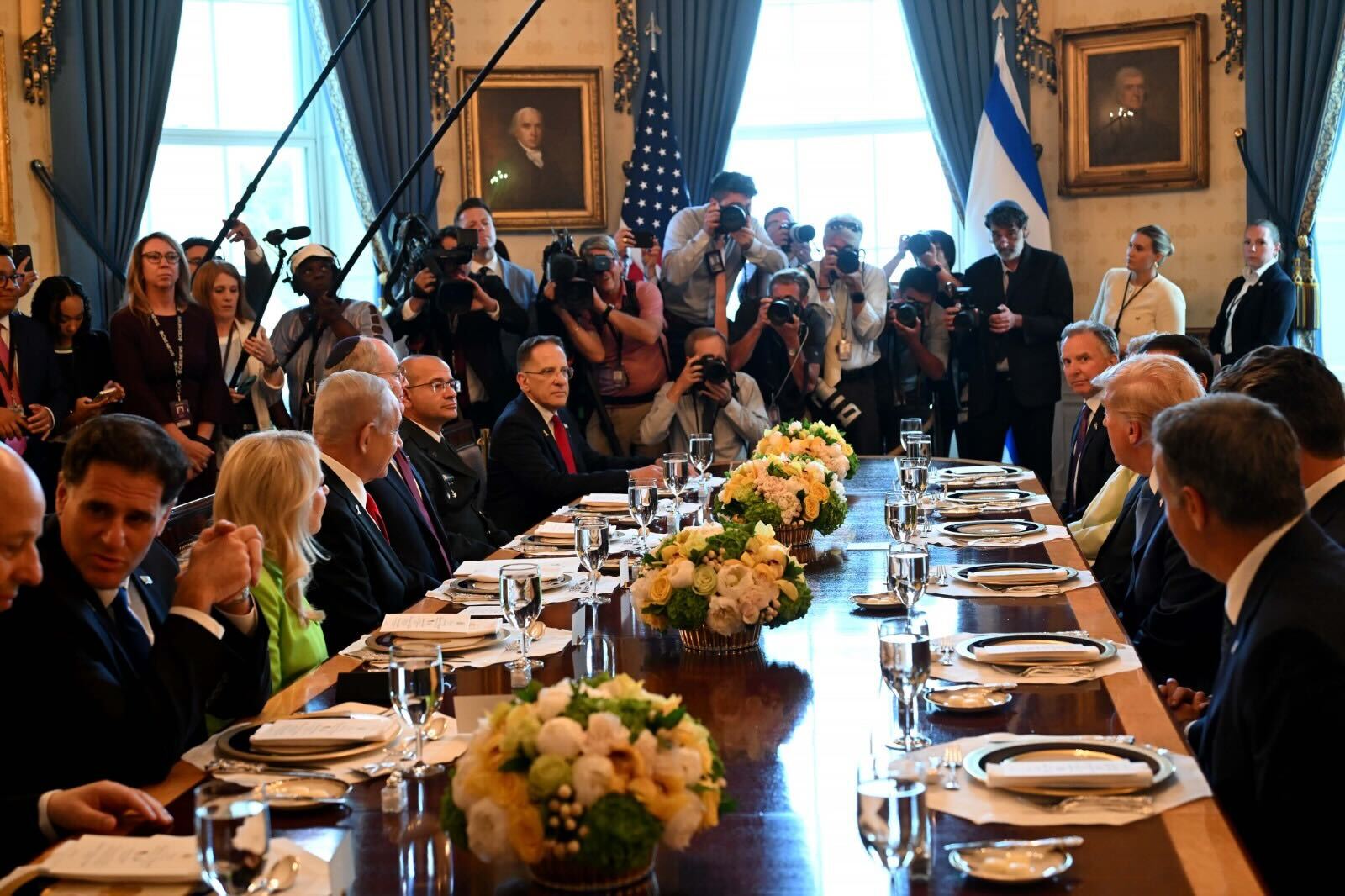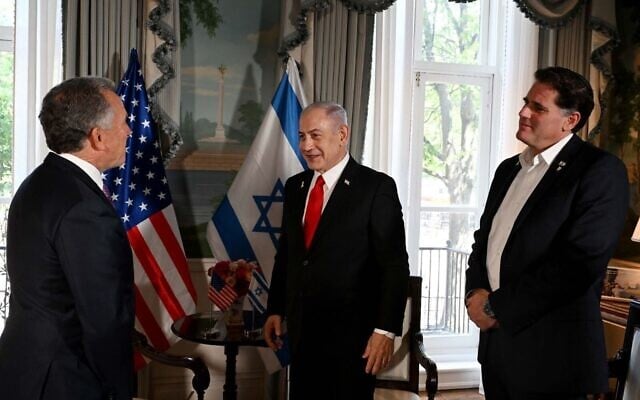



Two weeks after he stood on the White House lawn fuming at Israel over its behavior in the final hours of the war with Iran, repeatedly stressing to reporters how deeply unhappy he was with Israel’s conduct, US President Donald Trump on Monday welcomed Prime Minister Benjamin Netanyahu into the building, hosted him, his aides and his wife Sara for dinner, and lavished praise on his guest.
On June 24, Trump only cut short his tirade so that he could contact Netanyahu and make sure that the prime minister was, as he had ordered, calling back Israeli jets that were poised to strike at Iran in response to a post-ceasefire missile barrage. On July 7, in stark contrast, he hailed the “tremendous success” he and Netanyahu have had together, and predicted “even greater success in the future.”
The crisis de jour, this time, is no longer Iran, though the threat posed by the unbowed regime in Tehran may well yet return to dominate the agenda. It is, rather, the latest effort to finalize a Gaza ceasefire and hostage-release deal. And what was noteworthy about the tone and content of the remarks Trump and Netanyahu made to the White House press before starting their meal was the president’s disinclination to publicly bend Netanyahu to his will on Gaza in the way he did regarding the implementation of the Iran war ceasefire.
Trump has stressed repeatedly — in recent days, and indeed ever since returning to office — that he wants to bring the Gaza fighting to an end and to secure the return of all 50 remaining hostages, 20 of whom are believed to be alive. It is his “utmost priority,” White House Press Secretary Karoline Leavitt had reiterated shortly before Netanyahu, his wife and his team arrived on Monday evening.
But Netanyahu is adamant that he will not end the war until Hamas is destroyed — its leaders exiled; its forces disarmed; its Gaza governance capacity ended; its ability to rise and again threaten Israel eliminated. And Hamas, in claiming to respond “positively” at the weekend to the latest iteration of Special Envoy Steve Witkoff’s ceasefire-hostage proposal, was adamant that the proposed 60-day truce must reliably lead to a guaranteed permanent ceasefire and the full withdrawal of Israeli forces from Gaza, thus enabling its survival and revival.
Trump is plainly seeking to build a new mix of alliances in the Middle East, to America and Israel’s profound benefit. By legitimizing Syria’s new leadership, he opened the path to direct contacts between Jerusalem and Damascus, and he aims to widen the Abraham Accords to include Saudi Arabia. That is the kind of “even greater success” he anticipates in partnership with Netanyahu. But he knows it’s not feasible so long as Israel is at war in Gaza.
Rather than publicly pressuring Netanyahu, Trump on Monday stated mildly, when asked about the negotiations, that the sides “want to meet; they want to have that ceasefire.” He joined the prime minister in re-endorsing the vision he unveiled when they met in February of a mass relocation of Gazans. And he simply gave Netanyahu the floor when he was asked about the prospects of a two-state solution, describing the prime minister as the “greatest man in the world to answer that question,” and allowing Netanyahu to explain at length why a fully sovereign Palestinian state would spell “suicide” for Israel — as underlined by the October 7 massacre perpetrated by Hamas from its quasi-state.
Witkoff is now heading to Doha in a bid to square the circle. In January, his presence was central to finalizing the last such deal — which collapsed after its first phase in March because Netanyahu, then as now, was not prepared to advance to the planned subsequent phases that would have required the permanent cessation of hostilities.
Invited by Trump at the dinner to assess the progress of the Doha talks, Witkoff stated: “We have an opportunity to finally get a peace deal — Mr. Prime Minister, as we discussed — and I’m hopeful for it very quickly.”
To get there, however, will require all of Witkoff’s proven negotiating skills. For he will be required to persuade Hamas to accept terms that ostensibly meet its demands for a guaranteed end to the conflict, even as Netanyahu has made crystal clear, as he put it last week, that ultimately, “there will be no Hamas. There will be no Hamastan. We are not going back to that. It is over.”

